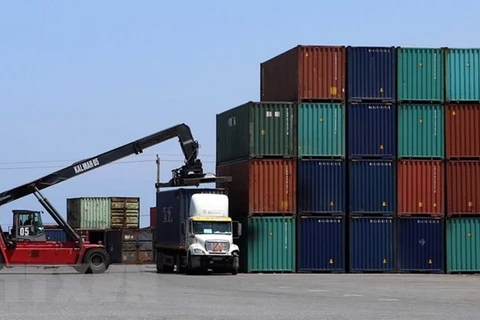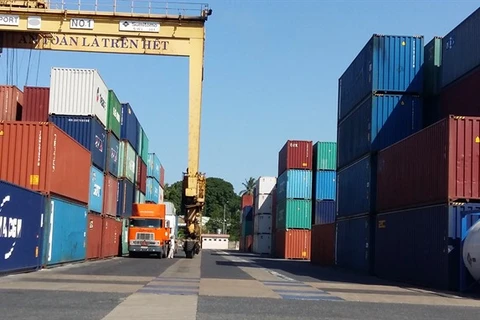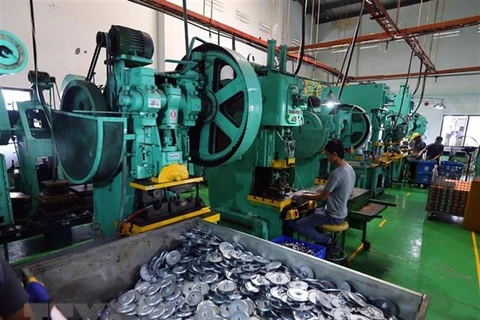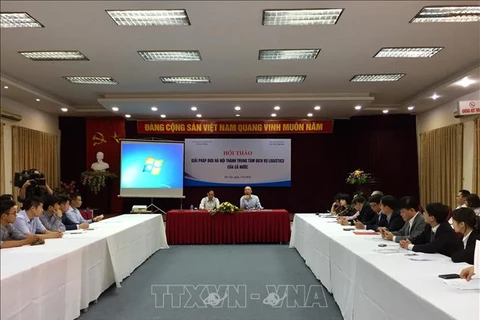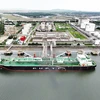Hanoi (VNA) – Logistics costs amount to 20.9 percent of Vietnam’s gross domestic product (GDP), impeding the country’s competitive edge, according to experts.
The Business Environment and Competitiveness Department under the Central Institute for Economic Management (CIEM) has said that transport costs make up some 59 percent of logistics expenditure, with road transport, equal to 77 percent of the total, the priciest type of transport. Meanwhile, unofficial costs often account for 5-10 percent of transport costs.
Businesses have to spend 5.8 million VND (249.65 USD) to ship a 40-foot container via road from Ho Chi Minh City to Tan Thanh border gate in the northern border province of Lang Son. However, it costs them only 4.6 million VND (200 USD) to deliver the same container by sea to the US.
The firms have to pay about 17.5 million VND (753 USD) in road maintenance for each truck per year in addition to paying road toll fees.
Economists attribute soaring transport costs to weak connections between various means of transport. In addition, multi-modal transportation has not been developed in Vietnam due to a shortage of proper infrastructure and comprehensive investment in linking transport modes.
Prime Minister Nguyen Xuan Phuc pointed out barriers to the development of logistics firms at a national logistics conference held in mid-April 2018, saying high logistics costs have critical impacts on the competitive capacity of local firms and the whole economy.
He underlined that asynchronous investment and poor connectivity result in steep transport costs.
PM Phuc described the early completion of logistics mechanisms and policies as an urgent measure to handle the issues.
Along with efforts to accelerate administrative reforms and improve the business climate, the Government has encouraged global integration by joining regional and world free trade agreements, helping reduce costs for local firms.
Relevant ministries and localities should implement the Prime Minister’s Decision No.200/QD-TTG on an action plan to improve competitive capacity and develop logistics services until 2025.
Meanwhile, experts suggested logistics businesses invest in automated technologies and better their operation ability. They should work with e-commerce firms to ensure quality products and timely transportation. In the context of the Fourth Industrial Revolution, they need to boost research and application of new technologies to better logistics operation.-VNA
VNA

